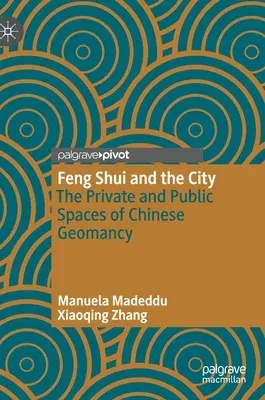Manuela Madeddu
(Author)Feng Shui and the City: The Private and Public Spaces of Chinese Geomancy (2021)Hardcover - 2021, 20 April 2021

Qty
1
Turbo
Ships in 2 - 3 days
In Stock
Free Delivery
Cash on Delivery
15 Days
Free Returns
Secure Checkout

Print Length
158 pages
Language
English
Publisher
Palgrave Pivot
Date Published
20 Apr 2021
ISBN-10
9811608466
ISBN-13
9789811608469
Description
Product Details
Authors:
Book Edition:
2021
Book Format:
Hardcover
Country of Origin:
NL
Date Published:
20 April 2021
Dimensions:
21.01 x
14.81 x
1.12 cm
Genre:
Urban
ISBN-10:
9811608466
ISBN-13:
9789811608469
Language:
English
Location:
Singapore
Pages:
158
Publisher:
Weight:
362.87 gm